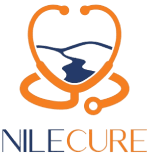
Full mouth dental reconstruction, also known as full mouth rehabilitation or full mouth reconstruction, is a comprehensive treatment approach aimed at restoring the function, aesthetics, and health of the entire mouth, including the teeth, gums, and jaw.
Here’s an overview of the process involved in full mouth dental reconstruction:
Comprehensive Evaluation: The first step in full mouth reconstruction is a thorough examination of the mouth, teeth, gums, and jaw by a qualified dentist or prosthodontist. This evaluation may include digital X-rays, CT scans, dental impressions, and other diagnostic tests to assess the extent of dental issues, such as tooth decay, gum disease, bite problems, and jaw misalignment.
Treatment Planning: Based on the findings of the evaluation, a customized treatment plan is developed to address the specific needs and goals of the patient. The treatment plan may involve multiple dental procedures performed in a coordinated sequence to achieve optimal results. The dentist will discuss the proposed treatment options, including the pros and cons, risks, and expected outcomes, with the patient before proceeding.
Restorative Procedures: Full mouth dental reconstruction may include a combination of restorative procedures to repair or replace damaged or missing teeth, improve bite alignment, and enhance overall oral function and aesthetics. Common restorative treatments may include:
Dental fillings or crowns to repair cavities or restore damaged teeth.
Dental bridges or implants to replace missing teeth and restore chewing function.
Orthodontic treatment, such as braces or clear aligners, to correct misaligned teeth and bite issues.
Periodontal therapy to treat gum disease and restore gum health.
Endodontic therapy (root canal treatment) to save infected or damaged teeth.
Oral surgery procedures, such as tooth extractions, bone grafting, or jaw surgery, if needed.
Cosmetic Enhancements: In addition to restorative procedures, full mouth reconstruction may include cosmetic enhancements to improve the appearance of the smile. This may involve procedures such as teeth whitening, dental veneers, or gum contouring to create a more harmonious and aesthetically pleasing smile.
Prosthetic Solutions: For patients with extensive tooth loss or irreparable dental damage, prosthetic solutions such as dentures, partial dentures, or implant-supported dentures may be recommended to restore oral function and appearance.
Ongoing Maintenance: After completion of full mouth dental reconstruction, patients are advised to maintain good oral hygiene practices and attend regular dental check-ups and cleanings to ensure the long-term success of their treatment. Additionally, wearing custom-made night guards or mouth guards may be recommended to protect the teeth and restorations from damage caused by teeth grinding (bruxism) or sports-related injuries.
Full mouth dental reconstruction is a complex and multifaceted process that requires careful planning, coordination, and collaboration between the patient and dental care team. By addressing underlying dental issues comprehensively, full mouth reconstruction aims to restore oral health, function, and aesthetics, ultimately improving the patient’s quality of life and confidence in their smile

